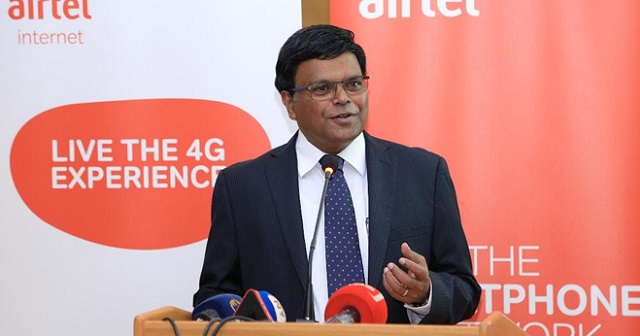
The trade is very lucrative, insiders claim. While telecom companies are always co-owned, revenue and losses shared on top of paying taxes; for simboxes, apart from the initial capital injection, there are literally no expenses, no taxes at all since it is an underground business.
An owner of a simbox can earn up to $10,000 dollars a day from just one simbox, those knowledgeable about the industry claim. That is about $ 350,000 a year. And with multiple simboxes, the figure goes up to millions of dollars.
But as simbox operators make these billions, registered operators and government are the major losers. Simboxing hurts telecoms business of international call termination, which is big business with agreements between telecom companies in millions of dollars. For instance, for a person using Vodafone to call an MTN subscriber in Uganda, Vodafone pays part of what it charges the caller to MTN.
What simbox operators do is hijack the call before it lands on the MTN servers, bypass MTN servers, and the call goes through a local line. Therefore, MTN charges the owner of the line the local rate but the owner of the simbox receives a higher rate for helping convert an international call into a local one. Simbox operators receive their cash outside the country to avoid being traced.
Uganda’s Financial Intelligence Authority early last year noted it was investigating revenue diversion and tax evasion in the sector amounting to $140 million (over 470 billion) in lost revenue.
The fraudsters pay only an eighth of the money they should have paid to the main voice operators in termination fees.
In a March 19 2015 letter, the FIA boss, Sydney Asubo, warned Mutabazi that over the past three years the country had lost up to $144 million accruing from incoming international telecoms traffic that is disguised as local traffic by simboxes.
Apart from the losses to telecom operators and government in tax revenue, fears remain that the untraced billions made by those who own simboxes can be used to jeopardise national security.
Estimates indicated that government loses 45 per cent in tax revenue and operators like MTN over $10 million a month.
Mutabazi told The Independent that government decided to have INMS managed by “the authorities managing it” – a vague description because of the lack of clarity, because of the overlaps of its functionalities—it has aspects of monitoring traffic, data, voice and security, among others.
“We wanted to prevent wastage and duplication of resources where there are multiple systems,” he told The Independent, “But UCC has visibility of the system and we use it to also play our part.”
Mutabazi said they had explained this to the telecoms in a bid to get them to comply.
“Unless they are afraid to be monitored,” Mutabazi said, “But Mobile Money runs on telecom infrastructure which is regulated by UCC. The point INMS is monitoring is on the switch when it is all still data and not money in the bank.”
Mutabazi said that from his stand point, the players understand this is the same way they understand that local interception is provided for in the security laws.
“We have explained this,” Mutabazi told The Independent in telephone interview.
Mutabazi was responding to concerns raised by the telecoms over the implementation of the monitoring technology. These concerns are contained in correspondences between the sector regulator and telecoms copies of which The Independent has seen. Mutabazi said that the telecoms had since pledged to grant the required access. It remains unclear, however, when the access will be granted and what impact that will have on especially mobile money.
 The Independent Uganda: You get the Truth we Pay the Price
The Independent Uganda: You get the Truth we Pay the Price



